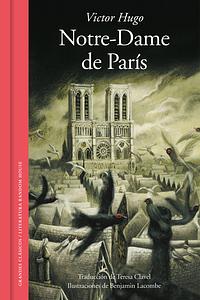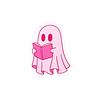Take a photo of a barcode or cover
This is one of the only books that if Christine asks me the ending, I can tell her "Everybody dies, Christine, everybody dies." And actually not be lying. I did like it a lot.
challenging
dark
emotional
informative
slow-paced
Plot or Character Driven:
Character
Strong character development:
No
Loveable characters:
Yes
Diverse cast of characters:
Yes
Flaws of characters a main focus:
Yes
adventurous
challenging
dark
reflective
sad
tense
medium-paced
Plot or Character Driven:
Character
Strong character development:
Yes
Loveable characters:
Yes
Diverse cast of characters:
Yes
Flaws of characters a main focus:
Yes
adventurous
dark
emotional
funny
reflective
sad
tense
fast-paced
Plot or Character Driven:
Character
Strong character development:
Complicated
Loveable characters:
Complicated
Diverse cast of characters:
Yes
Flaws of characters a main focus:
Yes
f the archdeacon
dark
funny
fast-paced
Plot or Character Driven:
Character
Strong character development:
No
Loveable characters:
No
Diverse cast of characters:
Complicated
Flaws of characters a main focus:
Yes
dark
emotional
sad
medium-paced
Plot or Character Driven:
Plot
Strong character development:
No
Loveable characters:
No
Diverse cast of characters:
No
Flaws of characters a main focus:
Yes
Well, it’s no surprise that every adaptation has to lop a couple hundred pages off this thing, slam characters together (add characters?!), change the ending, whatever else. Even more so than Les Mis, with its massive Waterloo and sewers of Paris detours, this thing seems to ramble. Perhaps that’s because its tighter focus and smaller narrative throws the asides into starker relief. Hugo’s being some thirty years junior to the Victor who wrote that larger novel is everywhere apparent—he’s more conservative, especially in his estimation of the poor, the rabble, and what whips them into riot; he’s less capable with his big Romantic plot twists; and while already with his first success Hugo has his penchant for this peculiar narrative flourish, reintroducing characters well known to the reader as strangers before revealing halfway through a chapter that we’ve known them all along, he does so more frequently and with less cause. And with more humor! It’s often quite a funny book, especially when Gringoire is around, up until about the last hundred and fifty pages. Which, speaking of, the violent break from the rest of the story ties up all the foreshadowed twists, but it leaves certain themes dangling in an unsatisfactory way. There’s much misplaced love around Paris in the 15th century, where men are unloveable for the hearts or unloveable for their faces, andQuasimodo and Frollo and Phoebus and Esmeralda seem to want us interrogate all that. These interrogations are cut short by nighttime escapes, showers of molten lead and a big, sweaty, eleventh-hour reveal. Well, Hugo gives up the game in his introduction: he wanted to write a novel about architecture. It’s probably for this reason that his characters have all the suppleness of carved stone.
Read the Sturrock’s translation for Penguin, which is fine, though the intervening decades would require an update.
Read the Sturrock’s translation for Penguin, which is fine, though the intervening decades would require an update.
I AM AN EMOTIONAL WRECK AT THE MOMENT AND I HOPE TO DIE SOON
challenging
dark
emotional
hopeful
informative
reflective
sad
tense
slow-paced
Plot or Character Driven:
A mix
Strong character development:
Yes
Loveable characters:
Yes
Diverse cast of characters:
Yes
Flaws of characters a main focus:
No
When I was a kid, one of my friends said this was her favorite book. I loved classics too, but I never got around to reading this until now . . . and I have to admit that I don't get her passion for it. It *is* a tragedy, but I don't necessarily hate tragedies, but this tragedy just had a lot to not love about it. I would love to hear the things that make it a favorite for somebody. There is just so much that I was falling asleep during so my husband suggested I either give up the book or skip it. I didn't want to give it up, and I'm not usually a skipper, but this time I did. There were pages and pages and pages on the architecture of Paris and the history of architecture. Then there was quite a lot later on about Louis XI -- why did Victor Hugo hate him so passionately -- they weren't even contemporaries. (Never mind, I pretty much despise Henry VIII, and we're not contemporaries either.)
Anyway, as to the actual story . . . my favorite scene was when Quasimodo was thirsty in the stocks and Esmerelda came even though she was afraid of him. Esmerelda was a wonderful character -- beautiful and virtuous and also strong enough not to give into Frollo even in the face of death. I appreciated the tension going on with the grieving mother and her hatred of the gypsies, because you realize pretty early on what is going on there. There were lots of things to love about the book. I thought the different men -- Gringoire, Phoebus, and Frollo -- were fascinating in their array of terrible examples of manhood. The way Hugo describes Quasimodo early on I sort of thought he was going to turn out to be a fiend too, because he implies that he's crippled inside as well as out, but then you find later that that's really just the popular opinion of him and not the truth. After reading about Hugo and his womanizing ways -- the way he made the women in his life jealous with his philandering -- I thought it was odd that he was telling a story like this, since he didn't exactly represent honorable manhood himself as far as I can tell.
Anyway there are some great elements to this story, but I could have used it parsed down to those elements and 75% of the other random junk cut out. Also, WHY WOULD DISNEY HAVE THOUGHT THIS WAS A GOOD STORY TO ANIMATE??? I mean, they changed the characters a lot -- ESPECIALLY Phoebus -- but still. Who would read this book and think, "Oh, yeah, this has great children's story written all over it!"???
Anyway, as to the actual story . . . my favorite scene was when Quasimodo was thirsty in the stocks and Esmerelda came even though she was afraid of him. Esmerelda was a wonderful character -- beautiful and virtuous and also strong enough not to give into Frollo even in the face of death. I appreciated the tension going on with the grieving mother and her hatred of the gypsies, because you realize pretty early on what is going on there. There were lots of things to love about the book. I thought the different men -- Gringoire, Phoebus, and Frollo -- were fascinating in their array of terrible examples of manhood. The way Hugo describes Quasimodo early on I sort of thought he was going to turn out to be a fiend too, because he implies that he's crippled inside as well as out, but then you find later that that's really just the popular opinion of him and not the truth. After reading about Hugo and his womanizing ways -- the way he made the women in his life jealous with his philandering -- I thought it was odd that he was telling a story like this, since he didn't exactly represent honorable manhood himself as far as I can tell.
Anyway there are some great elements to this story, but I could have used it parsed down to those elements and 75% of the other random junk cut out. Also, WHY WOULD DISNEY HAVE THOUGHT THIS WAS A GOOD STORY TO ANIMATE??? I mean, they changed the characters a lot -- ESPECIALLY Phoebus -- but still. Who would read this book and think, "Oh, yeah, this has great children's story written all over it!"???
Ik twijfel enorm tussen het geven van twee of drie sterren. Het lezen van dit verhaal is wel een bevalling.. het boek bestaat uit wel élf delen en het duurt ontzettend lang voordat er iets interessants gebeurd. Het verhaal bevat ontzettend veel omschrijvingen van Parijs en, naar mijn mening, doelloze randzaken. Ik verveelde me het grootste gedeelte van de tijd stierlijk tijdens het lezen. Echter, wanneer passages wél over de bekende hoofdpersonages gingen las het weer heel fijn weg en greep het ook mijn interesse. Best een afwisselende leeservaring dus! Ik ben blij dat ik heb doorgezet en het boek heb uitgelezen, want het is toch een klassieker. Maar aanraden zou ik het niet, voor je plezier zet je liever de Disney film op denk ik (die wel anders is!). Desondanks verschillen smaken en heb ik wel respect voor de auteur, je merkt dat het boek doordacht is en goed in elkaar steekt. Misschien is het verhaal niet meer zo van deze tijd? Wie weet..
Wat mij tot slot boeit is dat het tot een lijstje ‘verboden boeken’ behoort. Dit prikkelt mijn interesse weer. Ik denk dat ik kan stellen dat de auteur, de doordachtheid van het schrijfwerk en de achtergrond van het boek mij meer intrigeren dan het verhaal zelf.
Wat mij tot slot boeit is dat het tot een lijstje ‘verboden boeken’ behoort. Dit prikkelt mijn interesse weer. Ik denk dat ik kan stellen dat de auteur, de doordachtheid van het schrijfwerk en de achtergrond van het boek mij meer intrigeren dan het verhaal zelf.




